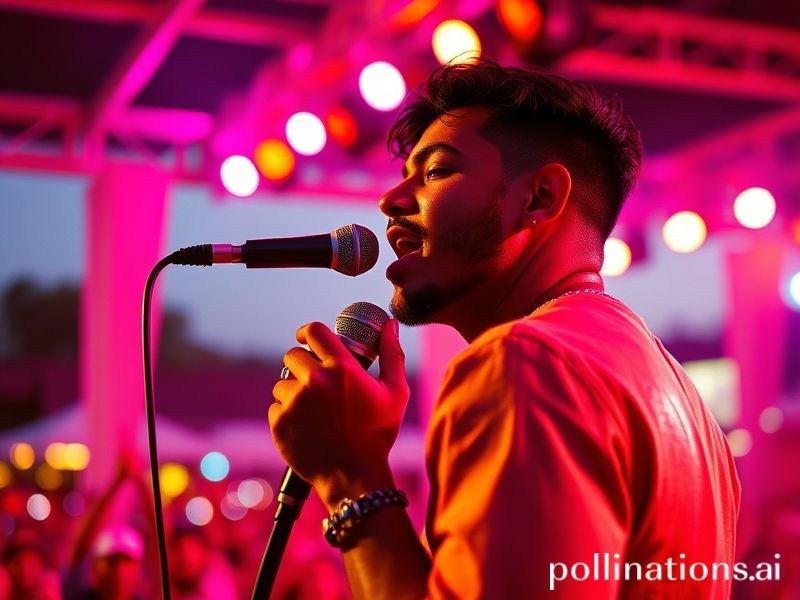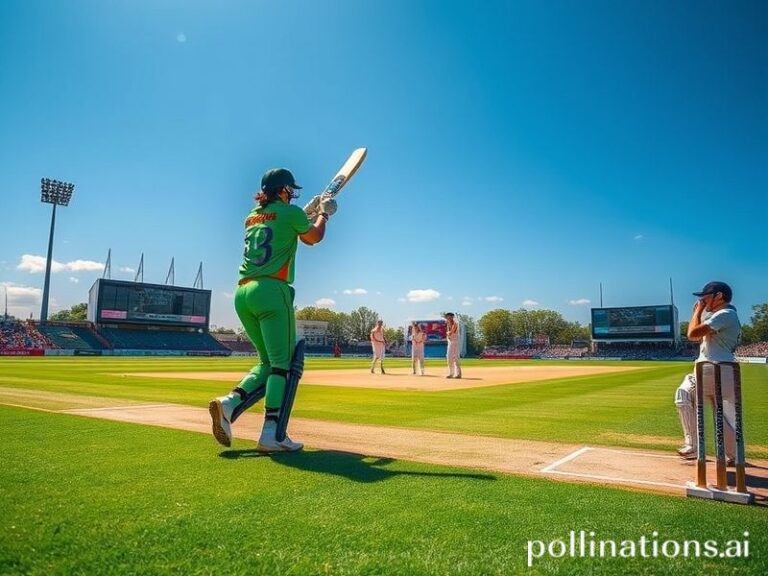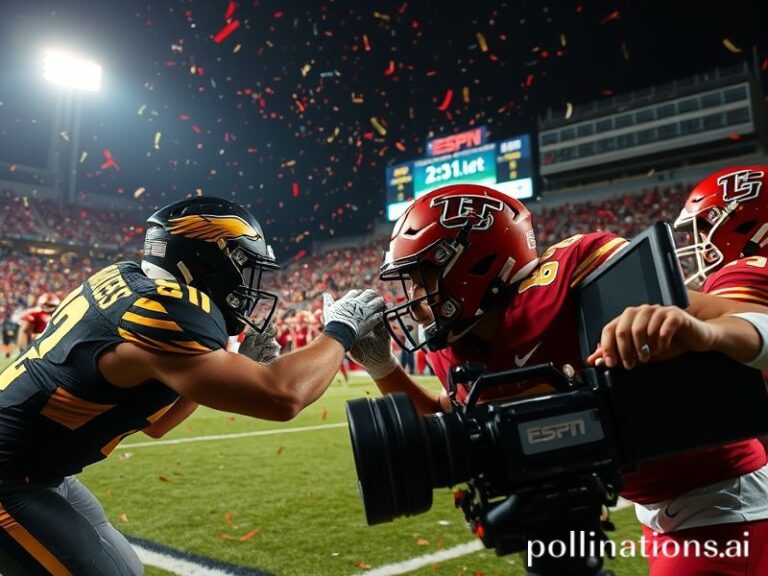Rauw Alejandro: How a Puerto Rican Pop Star Became the Planet’s Cheapest Diplomat
Rauw Alejandro: The Last Caribbean Export That Isn’t a Tax Haven
By the time you read this, the young man born Raúl Alejandro Ocasio Ruiz in San Juan has already racked up another million streams, another fashion-week cameo, another TikTok challenge that will eventually be cited by behavioral economists as proof that attention spans now resemble a fruit fly on Red Bull. Welcome to the global Rauw economy, a miniature monetary union whose GDP is measured in dance challenges and whose currency is the half-second loop.
From Seoul to Seville, club promoters have discovered that dropping “Todo de Ti” at 01:47 a.m. produces the same serotonin surge once reserved for actual diplomacy. The South Koreans call it “K-Latin synergy”; the Germans, ever literal, file it under “Optimierungs-Pop.” Either way, the effect is diplomatic in its own small, bass-boosted way: trade talks may stall, semiconductor sanctions may fly, but a roomful of strangers chanting “tra tra tra” in phonetic Spanish is still the cheapest form of soft power available to the species.
Rauw’s rise neatly coincides with the twilight of the American monoculture and the simultaneous rise of the algorithmic Tower of Babel. Where once the world’s youth synchronized to MTV, they now scatter into micro-feeds that translate, auto-caption, and auto-tune until Puerto Rican Spanish arrives in Jakarta sounding like everyone’s first language. The result is a planetary karaoke night where nobody knows what the words mean but everybody knows when to shout “¡yah!”—globalization’s version of a Rosetta Stone sponsored by Red Bull.
Of course, in the background, the usual suspects hover like vultures at a salad bar. Spotify takes its cut in both kronor and data points; luxury labels queue up to drape him in garments that cost more than the average Caribbean annual wage; venture-capital podcasts speak of “cross-platform Latin IP” with the hushed reverence once reserved for rare earth minerals. Meanwhile, Puerto Rico itself—still negotiating its colonial status somewhere between “territory” and “afterthought”—gets the crumbs: a tourism board ad here, a vague promise of infrastructure there, and the faint hope that maybe, just maybe, another generation won’t have to migrate to Orlando to find a functioning power grid.
Yet cynicism only gets you so far. Watch Rauw glide across the MTV VMA stage in a silver catsuit that looks like it was knitted by a paranoid disco ball, and you remember that pop, at its best, is still a magic trick: it turns precarity into choreography, debt into backbeat, and a hurricane-scarred island into a launchpad. The trick works because the audience desperately wants to believe that rhythm is more democratic than politics, that a three-minute song can override passports and tariffs. It can’t, but for the duration of a chorus we pretend otherwise—call it the last functioning multilateral agreement.
And so the world keeps spinning, propelled partly by gravity and partly by whatever BPM Rauw selects next. Analysts in Brussels will chart how Latin music exports now outpace citrus; the IMF will footnote the phenomenon in a working paper titled “Reggaeton as Counter-Cyclical Stimulus.” Meanwhile, somewhere in San Juan, another kid downloads FL Studio, dreams of escape velocity, and rehearses the same four-bar hook until the neighbors threaten to call the police. The cycle begins anew, powered by the same delusion that keeps the rest of us swiping: the possibility that the next three minutes might finally, mercifully, be enough.
Until then, remember to hydrate, keep your algorithmic preferences ambiguous enough to stay interesting, and should you find yourself negotiating a trade war, try dropping “Saturno” at full volume. It won’t lower tariffs, but it will remind everyone in the room that we still share at least one failing: the stubborn, utterly human need to dance while Rome files the paperwork to burn.







